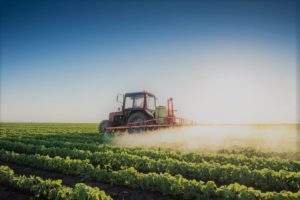University of Iowa College of Public Health
FOR IMMEDIATE RELEASE: Jan 30, 2020
CONTACT: Jenn Patterson, MLitt, GPCAH Communications Coordinator | Jennifer-j-patterson@uiowa.edu | 319-335-4026
Study reveals Midwest farmers’ top concerns and stressors
This multi-method study offers insight for researchers, stakeholders, and educators on prioritizing interventions and resources for Midwest farmers.
To better understand how to reduce injury and illnesses in Midwestern farmers, researchers at the University of Iowa College of Public Health have asked farmers to identify their own perspectives regarding hazards and stressors associated with their work. Responses from 540 farmers were analyzed to identify their concerns. The results have been recently published by the American Society of Agricultural and Biological Engineers in the Journal of Agricultural Safety and Health, available at https://doi.org/10.13031/jash.13660.
The study identified that Midwestern farmers’ top safety concerns focused on farm chemical safety, equipment and tools, and specific health conditions experienced by farmers. Nearly half of farmers surveyed made specific requests for information on safe chemical handling, storage and use, and for information relating the effect of farming chemicals have on health. Farmers also expressed their concerns regarding the safety of equipment and tools, with specific concerns on entanglement hazards and maintaining old equipment in safe operating condition. Over one-third of those surveyed had questions regarding health outcomes associated with farming exposures, including respiratory health, hearing loss, depression, pain, and acute illnesses.
To obtain insights into the stressors of farmer mental health, the survey also asked farmers to identify what is causing stress on the farm. Unsurprisingly, finances dominated the responses (45%), with market/commodity prices the most frequently identified stressor. However, farmers identified climate/weather (22%) and workload and labor concerns (16%). Additional farmers reported being stressed about family and personal issues, farm-specific activities, health and safety, regulations and politics, and aging. Discussions with farmers about multiple factors, particularly in times of economic uncertainty and weather extremes, may be recommended to diffuse anxiety in order to promote mental health among farmers.
Tools to help farmers improve knowledge or develop protective practices that target these topics may be welcome by farmers. The Great Plains Center for Agricultural Health, one of 11 national agricultural safety programs funded by the Center for Disease Control, has compiled information across many of these topics to begin helping farmers address their concerns and reduce stressors. For more information about how farmers get hurt and how to prevent these injuries, visit gpcah.org and select “resources” from the menu options.
This study was supported by the University of Iowa Great Plains Center for Agricultural Health.
Contact information: Kanika Arora, PhD, Assistant Professor, Department of Health Management and Policy, College of Public Health, University of Iowa, kanika-arora@uiowa.edu.

